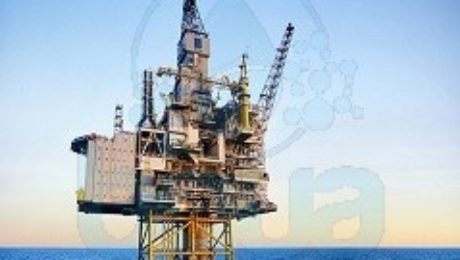What is Process Water ?
Process water is the name given for water which is not considered drinkable (not drinking water) and is basically used in relation to industrial plants, industrial processes and production facilities. Process water was originally subjected to a substantial water treatment, like for instance; multimedia filters, softeners, reverse osmosis, etc.
Process Water in the industrial water treatment process
Most probably each and every product being manufactured uses industrial water treatment during some if not all stages of the production procedure. Industrial water treatment main purpose is to facilitate the manufacturing process, reduce cost and help support production for certain products of which water is an essential element in its composition; i.e: beverages processing, detergents, paper, chemical processing, etc. The use of process water can be in many forms such as; Â fabrication, dilution, sanitation or incorporation of process water into a product.
It should typically have conductivity 0.1 to 50 Microsiemens per Centimeter µS/cm, with almost zero hardness to to prevent scaling. Carbon dioxide (CO2) and Oxides (Oxygen) cause corrosion. Water requirements depends on the type of application.
Process Water in the commercial water treatment process
Commercial water treatment sector is essential  when thinking of the use of process water in steakhouses, every restaurant and cafe, pizzerias, hotels, offices, shops, civil and military organizations and all other sorts of commercial water uses.
With the required knowledge and expertise and a broad product range, BQUAÂ is proudly capable to implement and accomplish projects for all types of applications and harsh solutions.
- Published in Water Treatment
Water Treatment Oil and Gas
Purpose of Reverse Osmosis Systems is to support and help treatment of oil contaminated water to recover petroleum oils that are found in water bodies at several stations.
- Free non-emulsified oils
- Emulsified oils and stable in the water
- Insoluble solids
The principles of the separation, recovery and water treatment oil and gas depends on characteristics and properties of these oils; the nature and existence, solid materials and non-emulsified oils are physically separated while emulsified oils are chemically separated. Finally, small emulsions and organic dissolved material which were not treated with previous means are being treated biologically.
Stages and methods for water treatment oil and gas
Contaminated water are being processed by three phases depending on the method of processing which are:
- Physical treatment
- Chemical processing treatment
- Biological treatment stage
Physical treatment
Solid matters and non-emulsified oils are separated based on the principle of gravity, where design breaks is returned to the American Petroleum Institute, which the design depends on the principle of the difference in density between the water and oils properties, whether free or solid. Free oils float on the surface of the water and taken by a certain abrasive raze to a special hole to be returned again after layering to the production lines while the solid matters settle at the bottom of these basins are taken through a private in the form of sludge sockets to private places where follow up treatment and disposal.
Chemical processing treatment
Emulsified oils can not be separated physically so it needs to be separated chemically which allows to remove the case of emulsification and stability emerging between oil and water in the middle surrounding the second phase.
Where external water are brought from external basins after adding some coagulated materials such as iron sulfate which is less expensive than other coagulated materials and because they in fact do two jobs.
Forms (after oxidation by dissolved oxygen moiety) hydroxide compound of iron gelatin textures and surface, which has a capacity that helps adsorption of emulsified oil droplets on the surface and the air with the help of the dissolved.
The addition of iron sulfate helps in getting rid of hydrogen sulfide gas dissolved and compounds which may be contained with oily water, which have seriously damaged the subsequent biological treatment work, where the presence of iron sulfide is a moiety with ion iron deposit is a black iron sulfide.
After the formation of the raw material adsorption (ferric hydroxide) a polymer is added with high molecular weights that carries an electric positive charge on the surface collects iron hydroxide particles on the surface compounds the problem so volumes and surfaces wide capable of dissolved air flotation, which will inject later assisted.
Complete chemical treatment of so-called phase flotation stage, a very important and very critical stage in the improvement of the final specifications for water treatment and symbolized by the acronym of the dissolved air flotation.
The principle of this method depends on the density change problem solids by adding the previous chemicals by joining the air bubbles injected by a private network at the bottom of the tub to the surfaces of these pendants and its contribution to the expansion of the relative surfaces and thus reduce the intensity of which will allow its flotation.
In other words, what is meant by flotation in fact is the updraft of adsorption materials that will contribute to the adsorption of emulsified oil droplets at the same time also pick up solid natural pendants which we call water turbidity collected on the surface of the flotation tanks.
Then to be taken by a special raze gathered in private protectors called flotation sludge pit.
Biological treatment stage
Emerging from the flotation stage water enters the biological treatment providers basins mechanical mixers are secure ventilation of these basins and providing oxygen required for processes of oxidation where this method is the most common and successful way in converting organic material, whether decadent or sizes minutes impossible separated previous stages to non-material decadent through oxidized by microorganisms (bacteria) that are converted via vital metabolism to carbon dioxide and to new microorganisms called bacterial midwife to be placed at the bottom attached to the biological reactors settling basins and described in the third stage in the scheme.
Many of the microorganisms can feed on organic material dissolved or suspended and disassembled condition of maintaining the appropriate conditions of her life and, in particular, needs oxygen.
And measured the water content of organic material degradable bacteria, including the requirement we call organic oxygen: BOD Biochemical Oxygen Demand.
This standard represents the amount of oxygen consumed by bacteria to represent this organic material and can be called organic pregnancy basin biological When this pregnancy is fairly low and if there is sufficient tracts of land are designed in this case the biological basins Allagoonat system or open pits where believes bacteria which need oxygen directly from the natural air.
But if the high organic load must in this case from those basins oxygen supply mechanical means which are periodically required to secure for the entire basin ventilation.
- Published in Water Treatment
Industrial Water Treatment
Water is one of the most essential elements for the majority of industries. There are mainly three known forms of water; raw water, wastewater and process water. The need for water treatment is substantial before entering the process to attain a certain water quality and properties. This is in order to consolidate the industrial water treatment operation as effectively as possible in all the water treatment industries. The purpose of the industrial water treatment process is to assure that the water being processed will not harm or cause any damage to the equipment.
Moreover, a lot of water treatment industries use the water treatment process to produce clean and pure processed water in large amounts. Examples of these water treatment industries are oil and gas, food and beverage, hydroponics and agriculture, electronics and semiconductors, boiler makeup water, cooling towers, mining, car wash, chemical processing, power plant, bottling, pharmaceuticals, shrimp and fish farms, food processing, hotels and resorts, laboratory ultrapure water, etc. The objective of the industrial water treatment process is to recycle wastewater to a certain elevated degree. Subsequently lessening the water consumption and hence water pollution which in return will lead to cost reduction when the water is reused. Eventually, wastewater has to be treated in order to meet the environmental standards. Before either being released to the sewer systems or to be reused and fed back into the industrial operation.
BQUA has knowledge and expertise in the industrial water treatment field. As a leading water treatment systems manufacturer we strive to provide solutions to the toughest industrial water treatment challenges. With a mixture of advanced applied water technology, precision engineering and top of the notch designs and implementation of reverse osmosis water treatment systems. We design and engineer water treatment systems for all water treatment industries and applications. We supply water treatment systems, multimedia filters, cartridge filter housings, water treatment chemicals and innovative engineered solutions for raw water and recycled water to guarantee desired quality is attained. “Our knowledge and expertise are as broad as your needs”
Water Treatment Industries
 Oil and Gas |
 Agriculture |
 Hydroponics |
|
Hotels and Resorts |
Food and Beverage Processing |
Shrimp and Fish Farm |
|
Mining |
Semiconductor |
Pharmaceuticals |


